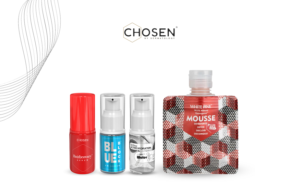The pros and cons of CO2 skin resurfacing: unveiling a popular cosmetic procedure
3 min readIn the world of cosmetic dermatology, various treatments aim to rejuvenate and revitalize the skin. One such popular procedure is CO2 skin resurfacing, a technique that utilizes carbon dioxide (i.e. CO2) lasers to improve skin texture, reduce wrinkles, and promote overall skin rejuvenation.
This article will delve into the pros and cons of CO2 skin resurfacing, allowing individuals to make an informed decision about whether it is the right choice for their skin concerns.
The pros of CO2 skin resurfacing:
Effective skin rejuvenation
CO2 skin resurfacing is renowned for its ability to deliver significant skin rejuvenation results. The procedure works by removing the topmost layer of the skin (or tiny fractions of it), stimulating collagen production, and encouraging the growth of new, healthier skin cells. This process leads to reduced appearance of fine lines, wrinkles, sunspots, acne scars, and uneven skin tone.
Versatility
CO2 lasers can be adjusted to different intensities, making the procedure suitable for various skin concerns. Whether it’s treating deep wrinkles, acne scars, or hyperpigmentation, CO2 skin resurfacing can be customized to address specific issues.
Additionally, the treatment can be performed on different parts of the body, including the face, neck, chest, and hands.
Long-lasting results
Compared to other non-invasive treatments, CO2 skin resurfacing offers longer-lasting results. The procedure stimulates collagen production, which continues for several months after treatment. As a result, the skin continues to improve in texture and appearance over time. The longevity of the results makes it an attractive option for those seeking a lasting solution to their skin concerns.
Customizable treatment
CO2 skin resurfacing allows dermatologists to tailor the treatment to an individual’s specific needs. The intensity of the laser can be adjusted based on the patient’s skin type, concerns, and desired outcomes. This customization ensures a personalized approach, enhancing the effectiveness of the treatment and minimizing potential risks.
The cons of CO2 skin resurfacing
Downtime and recovery
One significant drawback of CO2 skin resurfacing is the required downtime and recovery period. Following the treatment, the skin will be red, swollen, and sensitive. It may also peel and flake during the healing process, which typically takes one to two weeks. The face may be residually red for an additional eight to 12 weeks afterwards.
Individuals considering CO2 skin resurfacing must be prepared for this downtime and plan their schedules accordingly.
Discomfort and potential side effects
CO2 skin resurfacing can cause discomfort during the procedure. This is why topical or local anesthesia is used immediately beforehand. Patients may experience a burning or stinging sensation, which can be managed with appropriate pain management techniques.
Additionally, potential side effects include temporary redness, swelling, itching, and, in rare cases, scarring or infection. Proper pre- and post-treatment care can help minimize these risks.
Limited suitability for certain skin types
While CO2 skin resurfacing is effective for many individuals, it may not be suitable for all skin types. People with darker skin tones are at a higher risk of post-inflammatory hyperpigmentation due to their skin’s increased melanin content. It is crucial for those with darker skin tones to consult with an experienced doctor who can assess their suitability for the procedure and recommend alternative treatments if necessary.
Cost considerations
CO2 skin resurfacing is considered a more expensive cosmetic procedure compared to other treatments, even though it is still much cheaper than plastic surgery. The cost can vary depending on factors such as the location, the reputation of the clinic, and the extent of the treatment area or condition. Individuals interested in CO2 skin resurfacing should consider their budget and explore financing options if needed.
Conclusion
CO2 skin resurfacing offers numerous benefits for those seeking effective skin rejuvenation and correction of various skin concerns. The procedure’s versatility, long-lasting results, and customizable nature make it an attractive option.
However, potential patients must carefully weigh the pros and cons before deciding if CO2 skin resurfacing is the right choice for them. Consulting with a qualified doctor is crucial to understanding individual suitability, managing expectations, and achieving optimal outcomes.






